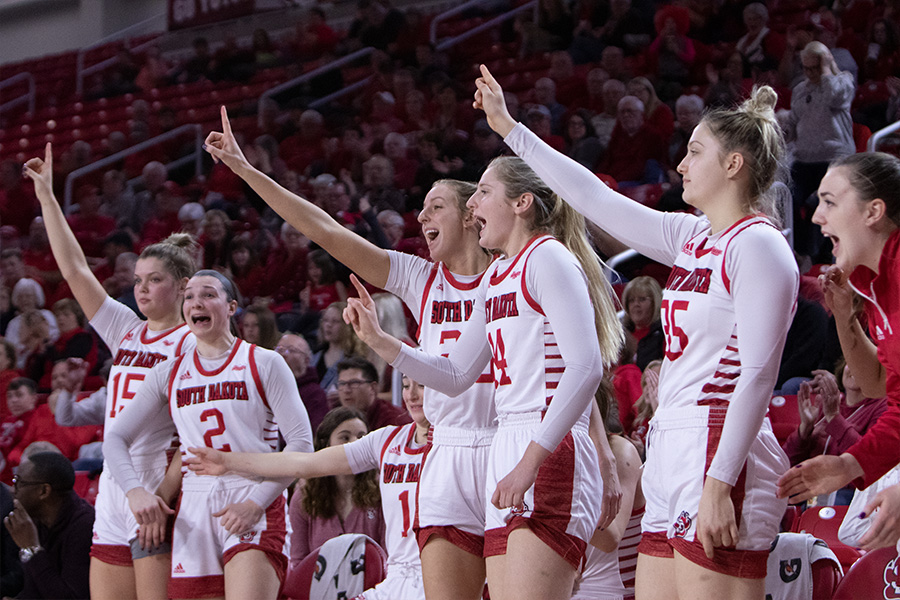Women’s Clinic At Sioux Falls VA ‘a Place To Call Your Own’
SIOUX FALLS, S.D. (AP) — Already this year, the number of female veterans coming into the Sioux Falls VA Health Care System has increased 24 percent over the previous year, and that number is expected to grow even faster after Aug. 31.
That is when the local Veterans Administration hospital expects to open its new Women’s Health Clinic on the main building’s first floor, the Argus Leader ( ) reported.
Charlotte McGrath, the women’s veteran program manager, was told three times that funding for the women’s-only clinic had been allocated through the federal government. Three times it was withdrawn.
When she received notice of funding for the fourth time, McGrath hardly dared to hope. But it happened.
“It has been a long time coming,” she said of the clinic. “The organization had to make a big commitment to make this happen. We now have leadership that saw it through. I think I will be emotional when I see women using this because it is so important for them.”
Darwin Goodspeed, director of the local VA hospital since December 2013, said as veterans’ demographics change, the health care system that serves them also must be revised.
“For a long time the women have been ‘fitted in,’ and it’s time,” Goodspeed said. “They deserve the respect and recognition of a clinic devoted to them and their health care needs.”
Of the 27,000 veterans who use VA services, about 1,700 of them are women, McGrath said. That number will increase rapidly, however, because currently 18 percent of those in military service are women. Compare that to pre-1974, when a cap restricted women in the military to 4 percent. In 2007, 860 women were served at the local VA.
“Women veterans, the average age that we serve is 46,” McGrath said. “Male veterans, 66 is the average age. Women veterans are the fastest growing group of veterans. The increase we’ve seen is because of the younger women who are coming.”
Services that female veterans use most frequently — primary care, mental health, gynecology and social work — all will be located in the 3,000-square-foot clinic on the hospital’s first floor.
The Women’s Health Clinic will not offer obstetric services, so Erin Bobeldyk, a tech sergeant in the South Dakota Air National Guard, is going to Avera Health for her prenatal needs. For about four years, however, VA physicians and staff have provided the 29-year-old with her annual physical exam.
“When I came back from overseas, I actually met Charlotte, and she’s the one who helped getting it ongoing right away,” said Bobeldyk, a full-time Guard employee.
Facilities such as Avera offer separate services for women, Bobeldyk said, and it should be the same for the VA.
“It’s kind of a place to call your own,” said Bobeldyk, of Brandon. “I currently go to Avera, and they have everything for women there, so why is it not the same when I come to the VA? That’s the status quo out in the real world.”
Cynthia Ault-Schmitz travels to the VA from her home in Arlington on a monthly basis. Ault-Schmitz, 58, served in the U.S. Army from 1975 to 1978. She has been diagnosed with post-traumatic stress disorder from sexual military trauma and treatment is ongoing.
Like Bobeldyk, who followed a family tradition and joined the Guard after high school, Ault-Schmitz enlisted after receiving her diploma, joining two male friends going in on the buddy system.
After her discharge, she visited the VA once, in 1979. Ault-Schmitz didn’t return for more than 20 years.
“I didn’t know until the early 2000s that I was allowed to come use the facility until I was working in the county welfare office, and the veteran service officer asked me why I did not come,” she said.
“He informed me I was eligible for services. I believe the stigma is still out there for a lot of my generation. It was never promoted, and we thought you had to be disabled or injured in some way and in the military to be able to use the facilities.”
___
Often, when people think of veterans, they think of their fathers and grandfathers, Goodspeed said.
“They don’t think about their brothers and sisters. I think that is changing considering it’s over a decade that we’ve been at war,” he said.
Women seek health care differently than men, Goodspeed said. They are much more accustomed to having a provider that can meet all of their needs, including preventive care and gynecology. Have a staff devoted to women’s health will make the VA a much more attractive option, Goodspeed said.
“This year, just in announcing the clinic, we’ve had 5 percent growth, and I expect 10 percent in coming months,” he said.
Women veterans have a unique need for privacy, McGrath said.
“Women aren’t always recognized as veterans,” she said. “Men come in and they’re wearing a cap or a jacket or a T-shirt identifying in which branch they served. Women aren’t always recognized as veterans. To have a clinic dedicated to women gives them the messages, we know what your needs are, and we’re here to provide them.”
Staff have had a say in designing the clinic, said licensed practical nurses Angela Kull and Lyndsay Keller.
“It’s tailored to women,” said Keller, a three-year employee. “We don’t have a weight scale in the hallway. We bought beds that will weigh them.”
“All the services will be here like mental health and social work,” said Kull, who has worked at the VA for nine and a half years. “We’re having them come to us, rather than going around the facility.”
A gynecologist is returning to the VA after an absence of several years.
Offering special services for women is not new to the VA, McGrath said. The clinics in Watertown, Aberdeen, Wagner, Sioux City, Iowa, and Spirit Lake, Iowa, already have women’s health suites. The exam table faces away from the door, the door has a lock and a bathroom is attached.
There also will be flexibility to meet changing health care needs. The VA now offers acupuncture and massage for pain control, and pain is one of the biggest issues that women dealt with. Having access to a naturopath is an excellent option for those who would like to seek alternative medicine.
“We’ve talked with the integrative staff about moving their tables down here one day a week,” McGrath said. “Social health is very important, and we’ve talked about having a book club in the evenings.”
Social services are important because the fastest-growing group of homeless veterans is women and women with children, she said. Suicide rates of female veterans are at least double that of the civilian population.
Women underestimate their value as veterans, McGrath said. Giving them a clinic designed for them might help change that.
___
Information from: Argus Leader,


